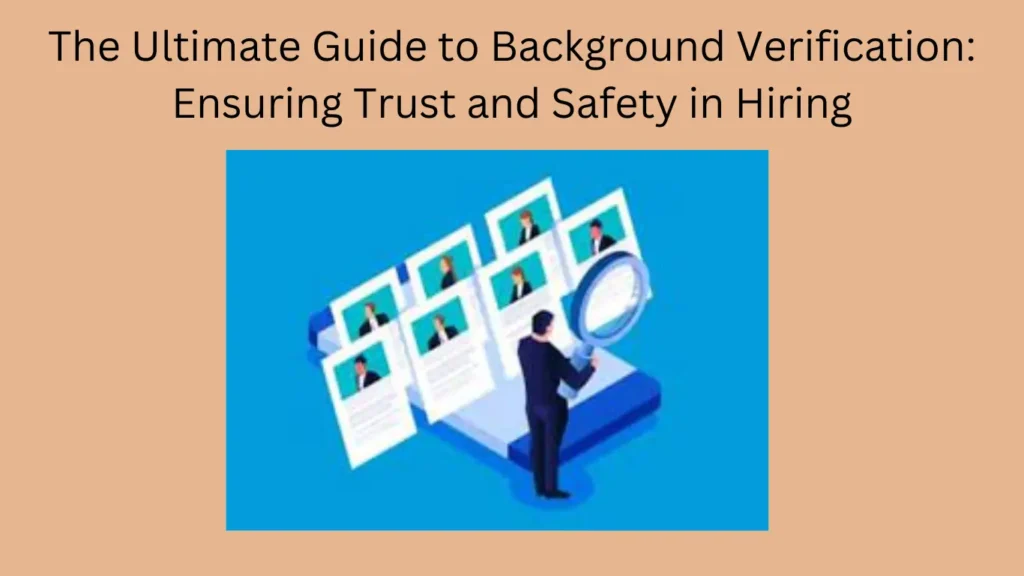Background verification is a critical step in the hiring process that helps businesses ensure they are hiring reliable and trustworthy employees. This comprehensive guide provides insights into background verification, its importance, process, benefits, and best practices to ensure trust and safety in hiring.
Why is Background Verification Important?
Background verification is essential for several reasons:
- Risk Mitigation: It helps mitigate the risk of hiring individuals with a history of dishonesty, criminal behavior, or other red flags.
- Ensuring Safety: Verifying the background of employees creates a safer work environment for everyone.
- Legal Compliance: It ensures compliance with legal requirements related to hiring practices and data protection.
- Protecting Reputation: Background verification helps protect the reputation of the business by ensuring employees are reliable and trustworthy.
Background Verification Process
- Application Review: Review the job application to determine the information that needs to be verified.
- Consent Form: Obtain consent from the candidate to conduct a background check.
- Verification Process: Conduct background checks, including criminal record checks, employment verification, education verification, and reference checks.
- Report Generation: Generate a report detailing the findings of the background check.
- Decision Making: Make a hiring decision based on the background check report.
Benefits of Background Verification
- Hiring Decisions: Helps make informed hiring decisions based on facts rather than assumptions.
- Reduced Turnover: Reduces turnover rates by hiring employees with verified backgrounds.
- Improved Safety: Creates a safer work environment by ensuring employees have a clean background.
- Legal Compliance: Ensures compliance with legal requirements related to hiring practices.
- Protecting Reputation: Protects the reputation of the business by hiring reliable and trustworthy employees.
Best Practices for Background Verification
- Use Reputable Services: Use reputable background verification services to ensure accurate and reliable results.
- Follow Legal Requirements: Obtain consent from candidates and comply with data protection regulations.
- Verify Information: Verify the information provided by the candidate through multiple sources.
- Keep Information Confidential: Ensure that the information obtained during the background verification process is kept confidential.
- Regularly Update Policies: Regularly update background verification policies to reflect changes in regulations and best practices.
Conclusion
Background verification is a crucial step in the hiring process that helps businesses ensure they are hiring reliable and trustworthy employees. By following best practices and conducting thorough background checks, businesses can protect their reputation, create a safer work environment, and make informed hiring decisions.
For further Inquires Contact Us
FAQs
Why is background verification important in the hiring process?
Background verification is crucial for mitigating risks, ensuring safety, complying with legal requirements, and protecting the reputation of the business.
What are the key steps in the background verification process?
The process includes application review, obtaining consent, conducting checks, generating a report, and making a hiring decision based on the findings.
How can businesses ensure the confidentiality of background verification information?
Businesses can ensure confidentiality by using reputable services, following legal requirements, and keeping the information secure.
What are the benefits of conducting thorough background verification?
Benefits include making informed hiring decisions, reducing turnover rates, improving safety, complying with legal requirements, and protecting the business’s reputation.
How often should businesses update their background verification policies?
Policies should be regularly updated to reflect changes in regulations and best practices, ensuring the effectiveness and relevance of background verification processes.
